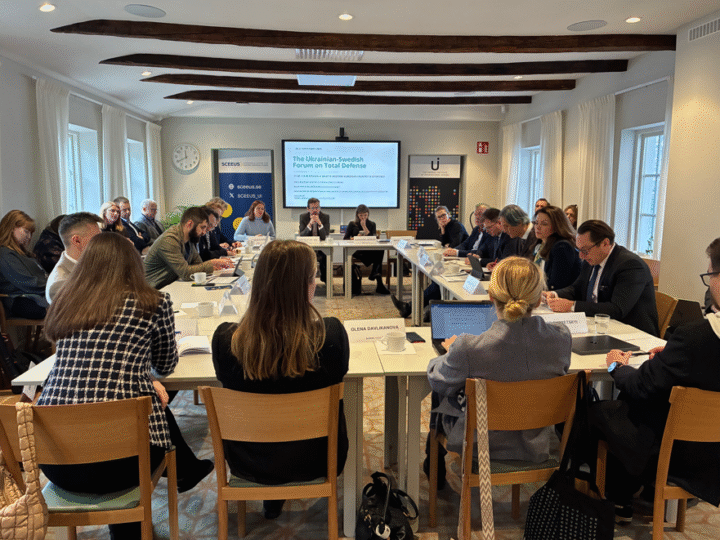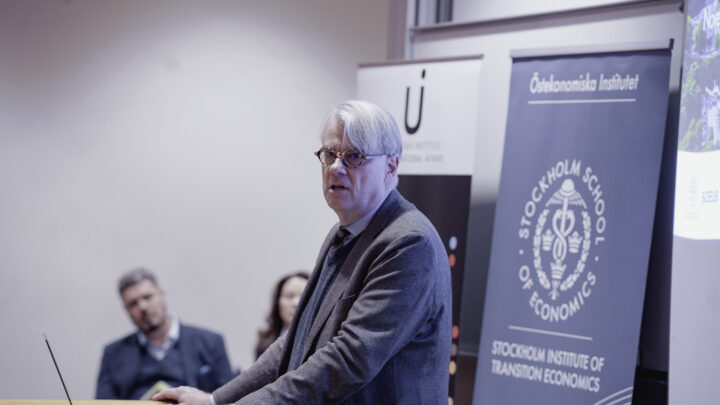26 November, 2025
SCEEUS hosts Ukrainian–Swedish forum on total defence
On 20–21 November, SCEEUS hosted a conference on the theme of total defence together with the Ukrainian think tank Sahaidachnyi Security Center, in cooperation with the Konrad-Adenauer Stiftung, International Renaissance Foundation and the Folke Bernadotteakademin. The conference brought together a delegation of representatives from Ukraine’s Ministries of Defence and Foreign Affairs, the Armed Forces, the defence industry, and civil society, alongside their Swedish counterparts.

Photo: SCEEUS
The conference comprised four thematic roundtable discussions aimed at exchanging experiences and perspectives between the two countries on issues related to total defence, resilience, and security policy. Each panel addressed concrete proposals for deepened cooperation and views on the way forward.
The first discussion was based on the Sahaidachnyi Security Center’s report “Russia 2032 Scenarios: A Decade Post Full-Scale Invasion of Ukraine” and addressed both current and future challenges related to Russian aggression. The second session focused on the central role of AI and drone systems in modern warfare. The use of drones has benefited Ukraine, as cost-effectiveness enables rapid innovation and a high degree of adaptability. At the same time, the pace of technological development means that today’s systems risk becoming obsolete quickly – an aspect relevant for Sweden’s ongoing defence investments. Regarding Swedish–Ukrainian cooperation, difficulties for Swedish authorities in identifying the correct Ukrainian counterparts were noted as a bottleneck. Local presence and direct exchanges with various security actors in Ukraine may become key factors for continued collaboration.
The second day opened with a session on Ukrainian resilience, drawing on the Sahaidachnyi Security Center’s report “Civil society role in Ukrainian defence”, which argues that Ukrainian civil society has played an indispensable role in the country’s resilience. Both Sweden and Ukraine are characterised by strong civil societies, suggesting that Sweden may benefit from Ukrainian experience. One example is Ukraine’s success in encouraging local initiatives and problem-solving within civil society. The Ukrainian context also shows that defence willingness cannot be understood solely through traditional measures of trust in the state, as trust in Ukraine has to a greater extent been directed towards local authorities rather than the central level. The final roundtable focused on the future geopolitical landscape and the challenges associated with continued Russian aggression against Ukraine or other countries.

Photo: Dominick Nilsson, SITE
In addition to the roundtable discussions, a dinner was held for conference participants as well as a public event with the Stockholm Institute of Transition Economics (SITE) on Ukrainian resilience. A recurring theme throughout the conference was the importance of culture and philosophy in understanding today’s security environment and Ukraine’s close ties to Europe’s history and future.
